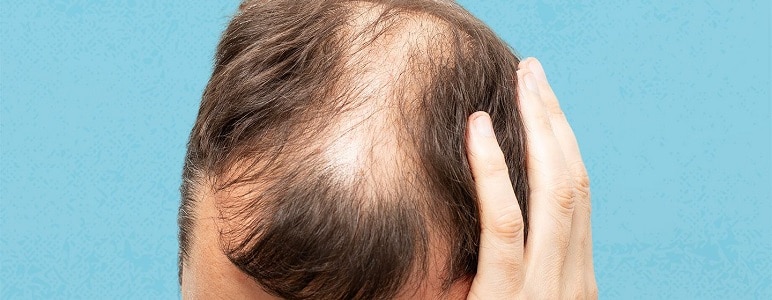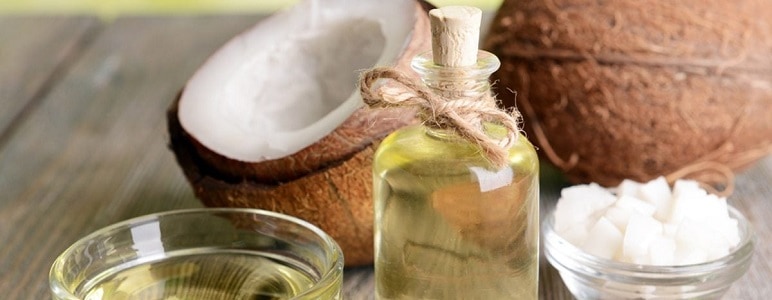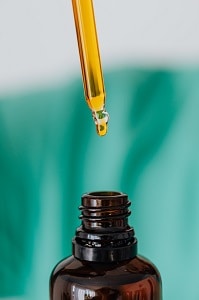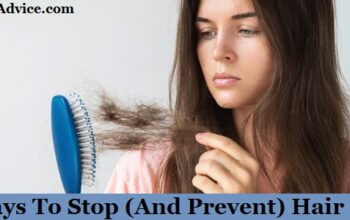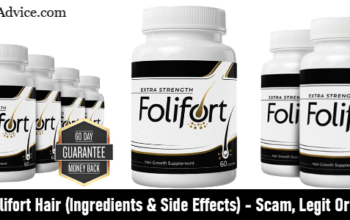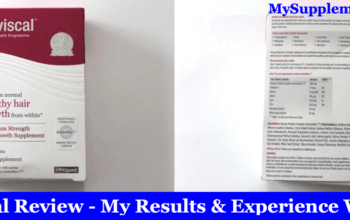
Rosemary oil became quite well-known nowadays, as many people started using it.
But the question is “How good is rosemary oil for hair growth”?
Let's answer this question by discussing various aspects related to this oil:
- how rosemary oil works
- what studies say about it
- how to use rosemary oil
Thus, not only will you find an answer to your question – but I will also teach you how to use it.
Did I make you curious?
Then, make sure you read the article and discover the information you need.
Note. This article is based on my own research on rosemary oil and hair growth.
Rosemary Oil For Hair Growth (In A Nutshell)
Are you wondering how good is rosemary oil for hair growth?
Well, the answer is right in front of your eyes.
In a nutshell, rosemary oil can be a very effective remedy for hair growth and health.
Actually, it is usually compared with minoxidil in terms of results.
That's because it can improve the health of your hair – and not only:
- stimulates hair growth
- has antioxidant properties
- works as an anti-inflammatory
- acts like a DHT blocker
- gives your hair the nutrients it needs
Moreover, rosemary oil does not trigger as many side effects as minoxidil does.
Also, after you stop using rosemary oil, your hair will not start falling out.
This usually happens when you use minoxidil, which is a lifelong treatment for hair loss.
Besides, a rosemary treatment can help you treat various types of hair loss:
- androgenic alopecia
- alopecia areata
- telogen effluvium
Its disadvantage is that there aren't many studies done about rosemary oil.
However, the studies that exist recognize rosemary oil as a potent treatment for hair growth.
Moreover, rosemary oil is so versatile that can be used in various ways.
The only condition is to dilute it with a carrier oil before using it.
After doing that, you are ready to use rosemary oil whenever you need it.
To be honest, I surely recommend you try rosemary oil and see how well it works.
How Rosemary Oil Works
Rosemary has been used for decades for culinary purposes.
Thanks to its aroma, it can make the right foods more delicious and appetizing.
However, the essential oil made from rosemary has its own benefits.
Especially if we are talking about cosmetic purposes – more specifically hair growth.
Yes, you've read it right! Rosemary oil can make your hair grow faster.
In fact, some people call it “natural minoxidil” because it is as effective as this famous treatment. [1]
Let's see how rosemary oil improves your hair growth:
- acts like a DHT blocker
- increases the blood flow to the scalp
- has anti-inflammatory properties
- works as an antioxidant [2]
- gives your hair the nutrients it needs
Now you can see why people think rosemary oil is similar to minoxidil.
That's because it acts as a DHT blocker – and in this way, it stops and prevents hair loss.
Moreover, rosemary oil has one more thing in common with minoxidil.
It increases blood flow to the scalp – so that your hair will start growing faster.
Moreover, rosemary oil has anti-inflammatory properties as well.
This means that it can also improve the health and appearance of the scalp.
How is it different from minoxidil though?:
- minoxidil stops working after you stop applying it
- so you need to use it on an ongoing basis
- once you stop the treatment, the hair you managed to grow will fall out
- yet, this is not the case with rosemary oil
- your hair will not fall out after you stop using it
- also, rosemary oil has fewer side effects than minoxidil
Thus, even if there are some similarities between minoxidil and rosemary oil, they are still different.
One is a natural oil and the other is an FDA-approved treatment for hair loss.
So keep in mind that rosemary oil can stimulate your hair growth.
And if you are looking for a good essential oil for your hair, rosemary oil might be the answer.
Types Of Hair Loss It Treats
As you probably know, hair loss can be caused by various factors.
This means that there are more types of hair loss.
So the question is “What types of hair loss can rosemary oil treat”?
Or better say “In which cases does rosemary oil work best”?
Well, some of the types of hair loss for which rosemary oil is effective are:
- androgenic alopecia (known also as pattern hair loss) [3]
- alopecia areata
- telogen effluvium
Now, rosemary oil seems to be the most effective in the case of androgenic alopecia.
However, it can also work for other types of hair loss (like alopecia areata or telogen effluvium).
What type of hair loss are these and what causes them?
Well, let me briefly answer this question.
First of all, let's talk about androgenic alopecia.
This is a type of hair loss that can appear in both men and women:
- has one more name – pattern (male or female) hair loss
- is a genetically predetermined disorder
- is caused by the excessive response to androgens (a type of hormones)
- can appear at any time after puberty
- is a progressive loss of terminal hair of the scalp
- the risk to suffer from it increases with age
In fact, androgenic alopecia is one of the most common types of hair loss.
This means that many women and men experience it at one point.
Another type of alopecia that can be treated with rosemary oil is alopecia areata:
- usually affects the hair from the head and face
- appears when your immune system attacks your hair follicles
- can be triggered by stress
- people who suffer from it might have bald spots all over the body
As you can see, alopecia areata manifests in a different way (compared to pattern hair loss).
However, rosemary oil can help you with it as well.
Last but not least, rosemary oil can be useful in the case of telogen effluvium as well.
This is a scalp disorder characterized by excessive shedding of the hair.
One of the factors that cause this disorder is the repetitive tension of the hair.
The symptoms that you might experience if you suffer from telogen effluvium are:
- redness of the scalp
- itching
- bumps
As an anti-inflammatory, rosemary oil can be one of the best remedies for telogen effluvium.
Thus, if you are dealing with any of these types of hair loss, you can surely try rosemary oil.
Rosemary Oil & Studies
Are you wondering what studies say about rosemary oil and its benefits?
According to my research, there aren't many studies about it related to hair.
Moreover, there aren't many clinical trials that tested the effectiveness of rosemary oil in general.
However, the studies that exist sustain the following ideas:
- rosemary oil can be as effective as minoxidil
- that applies especially in the case of androgenic alopecia
- also, rosemary oil can work in the case of alopecia areata
- yet, further trials need to be done
In other words, up to now, studies focused on the effectiveness of rosemary oil for two types of hair loss:
- Androgenic alopecia
- Alopecia areata
Also, it seems that rosemary oil can help you deal with telogen effluvium.
However, this does not mean that it cannot be used to treat other types of hair loss too.
It just means that research is limited.
That's why one cannot say with certainty how helpful it is in the case of other types of hair loss.
Yet, keep in mind that those studies acknowledge that rosemary oil can improve hair growth.
So you can also give it a try.
Who knows? Rosemary oil might be more effective than you expected!
How To Use Rosemary Oil For Hair Growth
Did you decide to try rosemary oil but you don't know how to use it?
Well, I can give you some good news!
In fact, rosemary oil is easier to use than you probably think.
Moreover, it is a versatile product (like other essential oils), so you can use it in various ways:
- massage rosemary oil directly to your scalp
- add it to your shampoo
- use a hair mask that contains rosemary oil
Before telling you in detail how to put those into practice, I have something more to say.
Rosemary oil needs to be diluted with carrier oil before using it.
Here are some examples of carrier oils that you can use:
- coconut oil
- jojoba oil
- olive oil
- almond oil
- argan oil
Before applying rosemary oil to your scalp, make sure you dilute it with one of those oils.
You just need to add 5-6 drops of rosemary oil to 20 drops of carrier oil and mix them together.
Now that you know all these, let's return to the options I mentioned in the beginning.
First of all, I will teach you how to apply rosemary oil to your scalp:
- After you diluted rosemary oil with a carrier oil, apply the mixture to your scalp.
- Massage your scalp using your fingers.
- Then, leave the oil on for at least 20-30 minutes.
- Wash and rinse your hair as usual.
- Repeat the treatment whenever you wash your hair.
- Your hair is already looking better, right?
In fact, you can also leave the oil on overnight and wash your hair the next morning.
This would be a more intensive treatment for hair growth.
However, if this option does not suit you, you can try the next one.
For this one, you only need to mix a small amount of rosemary oil into your conditioner.
Then, you rinse your hair as usual and you are ready to go!
However, if you prefer a hair mask, I will teach you how to prepare one at home.
Here's what you need:
- 1/2 cup coconut oil, melted
- 10-15 drops of lavender oil
- 10-15 drops of rosemary oil
Now, here come the instructions:
- Combine all the ingredients in a medium-sized bowl.
- Stir gently to incorporate.
- Apply the mask to your scalp and massage gently the scalp with your fingers.
- Leave the mask on for 20-30 minutes.
- Wash and rinse your hair as usual.
This mask contains more essential oils, so it is great for your haircare routine.
Yet, all the options presented here are effective and easy to put into practice.
That's why it's up to you which of those you pick.
So what do you think? Is rosemary oil worth a try?
Final Conclusion
What's the conclusion?
How effective is rosemary oil for hair growth?
To cut a long story short, rosemary oil can actually be a very good remedy for hair growth.
In fact, thanks to its properties, it can help you in the following ways:
- improves your hair growth
- acts like a DHT blocker
- has anti-inflammatory properties
- gives your hair the nutrients it needs
Actually, rosemary oil is also called natural minoxidil.
That's because it is similar to minoxidil in many ways.
Yet, if after you stop using minoxidil the hair you managed to grow falls out, this is not the case with rosemary oil.
Moreover, rosemary oil can be a useful treatment for more types of hair loss like:
- androgenic alopecia (known also as pattern hair loss)
- alopecia areata
- telogen effluvium
Yet, what do research studies say about this topic?
Well, even if the research is limited, the studies already done recognize rosemary oil's benefits.
Hence, it is indeed a potent remedy for both hair loss and growth.
What's more, it is easy to use.
You only need to dilute it with carrier oil and apply it to your scalp.
That's why if you want to give rosemary oil a try, I am your biggest supporter.
References:
1 – https://pubmed.ncbi.nlm.nih.gov/25842469/
2 – https://pubmed.ncbi.nlm.nih.gov/25002023/
3 – https://pubmed.ncbi.nlm.nih.gov/35044013/





